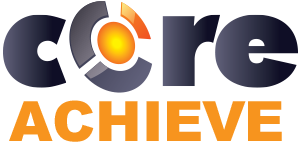Using an LMS for Healthcare Training and Why It Enhances Patient Care
June, 02 2023
Other posts:
Enhancing Team Dynamics for Effective Group Decision-Making with LMS Integration
Organizations increasingly rely on collaborative efforts to solve complex problems, innovate, and adapt to change, but how do we ensure that collaboration is happening.
Maximizing Small Business Potential with Training Technology
Training technologies can push small businesses ahead of their competitors, but what are the factors that go into choosing the right technology?
Unlocking Employee Potential: The Transformative Benefits of an Interactive Learning Management System (LMS)
Interactive training allows for unlocking employee potential, but how is it done?
Building a Robust Sales Pipeline with Training
Every organization wants a streamlined sales pipeline, but building one requires a series of interlocking activities with one of the most important being training.
Strategies for Adapting In-Person Training to Online Platforms
Online training is one of the most flexible ways of delivering training across organizations, but how do you even begin to adapt in-person training into online?
Healthcare is constantly evolving and, with it, patient care and safety, but only if the organizations keep their employees updated. A Learning Management System (LMS) is a cost-effective, efficient way to ensure healthcare workers can stay updated.
In the rapidly evolving healthcare industry, ensuring high-quality patient care and safety is paramount. Healthcare professionals need to stay up-to-date with the latest medical advancements and best practices. Implementing a Learning Management System (LMS) in healthcare training can significantly enhance patient care and safety by keeping professionals updated.
An LMS can help enhance patient care and safety by allowing professionals access to continuous, compliance, and standardized training; performance support; ensure regulatory compliance; and accurately assessing performance.
Continuous Training for Healthcare Professionals
Delivering effective healthcare requires professionals to possess up-to-date knowledge and skills. An LMS provides a platform for continuous training, allowing healthcare professionals to access relevant courses, modules, and resources at their convenience. Whether it's new treatment protocols, medical research updates, or regulatory compliance, an LMS enables healthcare professionals to stay informed and maintain a high standard of care. By offering engaging and interactive training materials, such as videos, simulations, and case studies, an LMS enhances the learning experience, resulting in improved retention and application of knowledge.
Standardization of Training
Consistency in healthcare practices is crucial for patient safety. An LMS facilitates the standardization of training across healthcare organizations. It ensures that all healthcare professionals receive consistent and standardized training, regardless of their location or department. With an LMS, healthcare organizations can develop and deploy standardized training programs that cover essential topics, such as infection control, medication administration, and patient privacy. By establishing uniform training protocols, an LMS helps mitigate errors, reduce variability in care delivery, and improve patient outcomes.
Compliance Training and Regulatory Adherence
Healthcare organizations operate in a highly regulated environment. Compliance with industry regulations, such as HIPAA (Health Insurance Portability and Accountability Act), is critical to maintaining patient privacy and data security. An LMS can streamline compliance training by providing targeted courses and assessments on regulatory requirements. Healthcare professionals can access and complete training modules on topics like patient confidentiality, ethical practices, and documentation standards. An LMS also enables organizations to track and monitor compliance training progress, ensuring that healthcare professionals meet regulatory obligations and maintain high standards of patient care.
Just-in-Time Learning and Performance Support
In critical healthcare situations, quick access to accurate information is vital. An LMS enables just-in-time learning, allowing healthcare professionals to access relevant resources at the point of care. Whether it's referring to drug dosages, medical procedures, or clinical guidelines, an LMS equipped with mobile capabilities ensures that healthcare professionals have instant access to information on their preferred devices. This on-demand learning approach enhances decision-making, reduces errors, and improves patient safety. Additionally, an LMS can offer performance support tools, such as job aids, checklists, and reference materials, to assist healthcare professionals in real-time, further enhancing patient care and safety.
Assessing Competency and Performance
An LMS offers robust features for assessing competency and performance in healthcare professionals. Through the platform, organizations can administer quizzes, exams, and assessments to evaluate the knowledge and skills of their staff. These assessments can cover a wide range of topics, including clinical procedures, emergency response, and patient communication. By tracking and analyzing the results, healthcare organizations can identify areas of strength and areas that require improvement. This data-driven approach allows for targeted training interventions, ensuring that healthcare professionals continually enhance their capabilities and deliver optimal care. Moreover, the ability to track and document individual competency and performance levels supports professional development, career advancement, and quality assurance initiatives within healthcare organizations. By leveraging the assessment capabilities of an LMS, healthcare providers can continuously monitor and improve the competence and performance of their workforce, ultimately leading to enhanced patient care and safety.
Implementing an LMS in healthcare training has immense benefits for patient care and safety. From continuous training and standardized practices to compliance adherence and just-in-time learning, an LMS empowers healthcare professionals with not only the knowledge and skills necessary to provide exceptional care, but also with the ability to judge this knowledge to their standards. By embracing technology-driven training solutions, healthcare organizations can enhance patient outcomes and prioritize the well-being of those they serve.
Get started with CoreAchieve for free today.
Photo by National Cancer Institute on Unsplash

Leave comment: